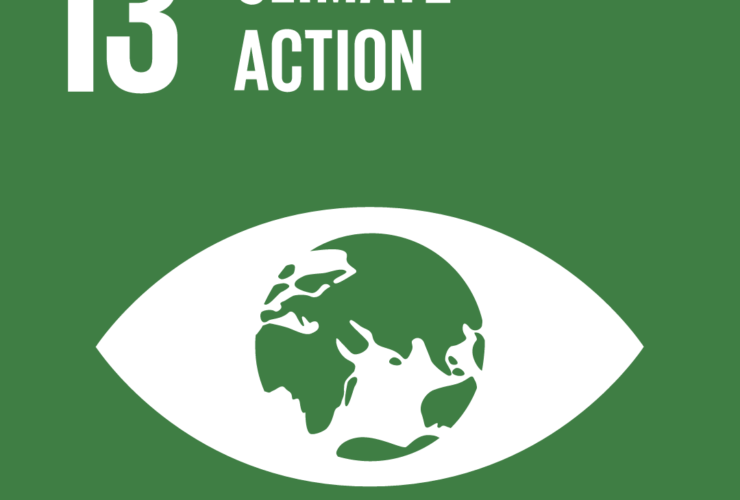Locals fearful as mega-projects drive rush for land on Kenya’s coast
Source: Thomson Reuters Foundation
Too poor to buy land where they grew up on Kenya’s palm-fringed southern coast, Sylvester Jefua and his wife migrated 300 kms northwards to Witu Forest, where they felled seven acres of trees and built a mud and thatch house for their family.
Ten years later, Jefua, 36, still does not feel secure.
Land prices in Lamu County where he built his home are soaring as the government buys up thousands of acres for a new road, port, coal plant, airport and railway line — and Jefua doesn’t have a title deed.
Last year, an unknown developer served him and other villagers in Witu, some 75 km (47 miles) southwest of Lamu town, with eviction notices.
“It was a nightmare,” he said. “Where do you settle your family after almost 10 years of what they have called home?”
The government intervened to protect them, and promised, yet again, to issue the villagers with title deeds.
But Jefua is still waiting for the precious document, which he wants to use to get a loan for a motorbike taxi business.
A title deed would also give him security to invest in a well to irrigate his cassava, maize and cashew nut fields and save his wife a lengthy trek into the forest to fetch water.
“The government knows that a group of people live in this area but recognizing that it is our land and granting us title deeds has been the problem,” said the father of five, sitting under a tree, watching a hen tend to her chicks.
Since coming to power in 2013, the government has issued tens of thousands of title deeds to squatters on the coast, like Jefua, to reduce landlessness.
But the process is being complicated by a flurry of infrastructure projects, which are driving up property prices, attracting an influx of speculators and exacerbating long-simmering tensions over land ownership.
SPECULATORS
Untitled land on the coast has long been traded informally, with buyers and sellers signing agreements in the presence of a government official.
The urgent need to formalize ownership has been brought into sharp focus with construction of the Lamu Port and the Southern Sudan-Ethiopia Transport Corridor (LAPSSET).
The $25 billion project aims to improve Kenya’s links with neighboring South Sudan and Ethiopia via a high-speed rail line, port, oil pipeline, highway, fiber-optic networks and three new airports.
After the government announced the project in 2008, people — known locally as commercial squatters — started clearing untitled land, putting up fences and selling it, often to speculators.
Many poor coastal residents have also sold their land to savvy speculators from other parts of Kenya, often armed with wads of cash, said Amina Rashid Masoud, Lamu County lands executive.
The new owners have acquired title deeds from the lands ministry in Nairobi, increasing its value tenfold to more than 1 million shillings ($9,800) an acre, raising concerns about where local people will farm, experts say.
They also point to the risk of further conflict in the future between investors and locals who are likely to remain landless after selling all their land.
DISPOSSESSED
Despite being a major tourist destination, development of Kenya’s coast has lagged behind since independence in 1963.
Many residents are illiterate, unemployment is high and few have electricity or running water in their homes.
Before colonialism, Kenya’s Muslim-dominated coast was owned by the Sultan of Zanzibar, who enslaved Africans to work on plantations, while local Mijikenda inhabitants fled inland.
The British colonialists introduced laws recognizing those who registered their land, mostly Arab and Swahili people.
Many Mijikenda were dispossessed of communally-owned land and rendered squatters as the British ruled that all unregistered land belonged to them.
“Before independence, only a small portion of land was allotted and assigned title deeds,” said Mohamed Mbwana, chairman of the Shungwaya Welfare Association, a civil society group campaigning for residents to be issued with title deeds.
The British forced Africans off prime agricultural land and into native reserves, to make way for white settler farmers.
While post-independence governments have settled squatters on public land and private land that they have bought, this has not solved the problem, experts say.
Much of the coast is still owned by wealthy foreigners and politically-connected Kenyan elites who, as absentee landlords, struggle to keep squatters off their land.
President Uhuru Kenyatta has issued more than 60,000 title deeds to coastal squatters since 2013, including giving away 2,000 acres of his family’s land.
But many coastal people feel they are still being exploited by richer and more powerful outsiders.
COMPENSATION
Joyce, who declined to give her real name, is one of the new breed of migrants who have moved to Lamu County to take advantage of LAPSSET.
Wearing a floral dress and a blue jacket, she sat outside her well-stocked hardware shop in Hindi, 26 km from Lamu, that supplies construction materials to several nearby towns.
Joyce moved here from Kenya’s capital, Nairobi, last year and has bought three parcels of land, totaling eight acres, half of which is titled.
“I plan to construct commercial houses for lease as well as sell some land to these investors,” she said, adding she has also helped friends from Nairobi invest in land in Hindi.
The government has already paid compensation to acquire land from some Hindi residents living along the route of a road which will run 254 km inland from Lamu to Garissa.
Negotiations over compensation are ongoing for other LAPSSET development projects.
The county government is surveying land and drawing up a spatial plan, designating areas suitable for conservation, settlement, farming, herding and future development projects.
This will help to speed up the issuance of title deeds, Masoud said, and reduce landlessness.
“Perhaps this county planning will ensure the government finally recognizes us and allocates us titles,” Jefua said.
(Reporting by Sophie Mbugua, Editing by Katy Migiro and Katie Nguyen. Please credit the Thomson Reuters Foundation, the charitable arm of Thomson Reuters, that covers humanitarian news, women’s rights, trafficking, property rights and climate change. Visit news.trust.org)


